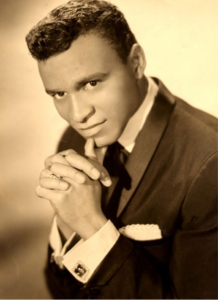When you mention Asbury Park to many music fans, they immediately think of Bruce Springsteen. And why not? He is certainly the biggest star to emerge from the Jersey shore town, and after all, he named his first album Greetings From Asbury Park. But the truth is that there was a vibrant music scene in Asbury Park long before Springsteen appeared, and it’s worth noting that there’s still a vibrant music scene in the city to this day.
Lenny Welch grew up in Asbury Park. He was born in 1938 and got his start entering talent shows with groups that he had assembled. In his teens, Welch made the short trip to New York City in search of a record deal, just as Springsteen did some years later. Welch auditioned for Decca Records along with his group. But Decca executives liked Welch as a solo artist and signed him.
Welch’s first two singles for the label, “My One Sincere” in 1958, and “The Blessing of Love” in 1959, flopped. Things began to take an upward turn when Welch was introduced to Archie Bleyer who owned Cadence Records. Welch signed with Cadence, and his first single for the label, “You Don’t Know Me,” showed promise, reaching #45 on the Pop chart in 1960. It would take three years, and several more non-charting singles, but Welch eventually hit pay dirt in 1963.

“Since I Fell For You” was a cover of a song written in 1945 by Buddy Johnson, and made popular by his sister Ella Johnson, who sang in Buddy’s band. Welch’s version soared all the way to #5 on the Billboard Hot 100. The record also reached #3 on the R&B chart. When Welch followed it up with his #25 hit cover of “Ebb Tide” in 1964, the future looked bright indeed. Unfortunately, fate would intervene to derail Welch’s career.
The first thing to happen was that Cadence Records folded in 1964, for reasons no one knows. Former Cadence artist Andy Williams bought the label’s assets, and re-released them on his own label, Barnaby, although Williams himself released his new recordings on Columbia Records. After Welch’s last Cadence release, “If You See My Love,” he began looking for a new record deal.
Welch eventually signed with Kapp Records, but at about that time Uncle Sam came calling, and he was drafted. He tried to keep his career momentum by performing on weekends, but it wasn’t until he was done with his military hitch that he started to score chart hits again. “Darling Take Me Back” was the first of these chart records, reaching #72 in 1965. Other Welch records that made chart appearances during that time were “Two Different Worlds” (1965), “Run to My Loving Arms” (1965), and “Rags to Riches” (1966). “Breaking Up is Hard to Do” returned him to the upper reaches of the charts, making it to #34 in 1970.
Welch decided to take a break. He was being compared to successful balladeers like Williams, and Johnny Mathis, and yet, he wasn’t getting the great gigs that they were getting, and his albums weren’t selling like theirs were. Taking the time to regroup may have seemed like a good idea at the time, but it turned out not to be. When Welch came back, the public had lost interest. His 1972 release of “A Sunday Kind of Love” was his last chart record, although he continued to record into 1977.





Comments